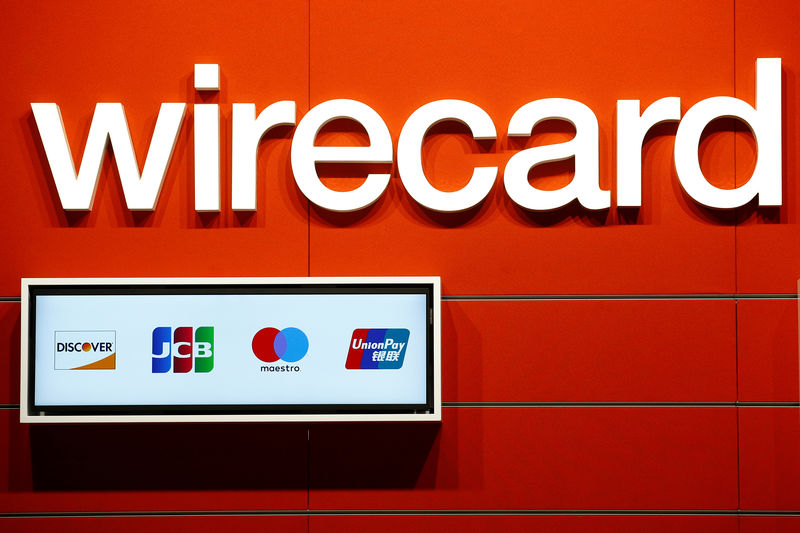By Geoffrey Smith
Investing.com -- At last - a corporate news story that has nothing to do with Covid-19!
Sadly, it’s not a good one. German payments company Wirecard (DE:WDIG) - a darling of retail investors for years and a rare example of a German startup success on an exchange dominated by 20th century stalwarts - has failed to banish accusations of improper accounting - principally by the Financial Times - that have dogged it for the last three years.
Wirecard stock fell as much as 22% in early trading in Frankfurt, before retracing to be down only 17.5%, after a special audit by KPMG concluded that it couldn’t validate the company’s accounts for 2016-2018 because it hadn’t received all the information that it considered necessary. As a result, Wirecard has also been forced to postpone the publication of its annual accounts for 2019, which was scheduled for Thursday.
Wirecard, as usual, front-ran the bad news with its own (much more positive) spin.
“Incriminating evidence for the public allegations of balance sheet forgery has not been identified,” it said in a statement on its website. “With respect to all four areas of the audit - Third Party Acquiring business (TPA), Merchant Cash Advance (MCA)/Digital Lending as well as the business activities in India and Singapore - no significant findings have been made, which would require an adjustment of the annual accounts 2016-2018.”
KPMG, however, said that it couldn't be sure that Wirecard had given it all the information necessary for its investigation.
“A final declaration of completeness was asked for by us but was, however, not provided by the management by the end of our investigation on April 27,” the accountants said. They also accused the company of taking months to provide the information they had asked for.
“As a result, we cannot say definitively that these documents and information are complete, correct and free of contradiction," KPMG said. "Similarly, we cannot judge whether all the information and evidence relevant to our judgment have been made accessible. In that regard, we cannot rule out that we would have come to a different conclusion with additional information and documents.”
As for validating the last three years’ accounts, KPMG noted that its mandate had been restricted to examining specific documents and matters related to them. As such, it said, the audit “cannot endorse the correctness of published accounts in general.”
Wirecard retorted that it couldn’t provide the data KPMG wanted because it was the property of third parties, so it provided its own numbers instead.
The investigation included, but was not limited to, allegations by the Financial Times that Wirecard used a Dubai-based entity, Al Alam Solutions, to inflate sales and profit figures. Wirecard, which initially sued the FT in response, has called the claims “nonsense”.
For the most part, investors have been happy to take the Aschheim-based company’s word over the FT’s, buying into a narrative that the allegations are just the expression of envious Anglo-Saxons in league with evil short-sellers.
However, the stock’s reaction on Tuesday suggests something may have shifted in perceptions. The glaring difference between KPMG’s conclusions and the company’s spin is not a good look, and investors don’t like being told that they cannot trust their own eyes, even by someone who has made them rich.
The news leaves the stock effectively where it was two years ago, and down 45% from its 2018 peak.
